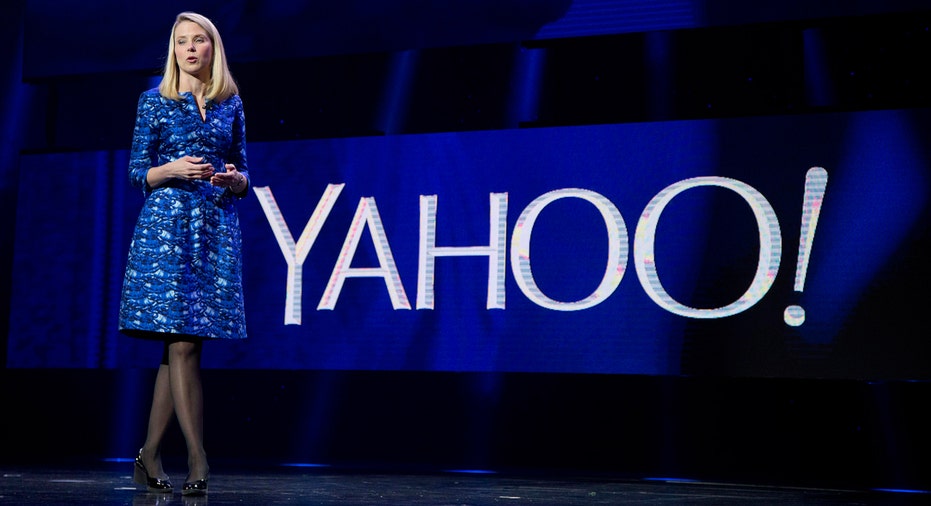Yahoo’s Strategy: ‘It’s Not That Complicated’

“It’s complicated.” – Yahoo CEO Marissa Mayer
After nearly a year of planning to spin off its stake in Alibaba Group (NYSE:BABA), Yahoo (NASDAQ:YHOO) has decided to reverse course and sell off its core business and 35% stake in Yahoo Japan, instead. The “reverse spin,” as the company calls it, will be a far more complex transaction than the original “forward spin,” and may take yet another year to complete.
Why the change of plan? When CNBC analysts tried to get to the bottom of the reasons behind the board’s flip-flop, in an interview with Yahoo CEO Marissa Mayer and chairman Maynard Webb, Mayer said the situation “is complicated.”
With all due respect to Mayer, it’s really not that complicated ... if they would just speak plainly about what’s going on, that is. Let me try to decode all the “complicated” rhetoric behind what’s going on at Yahoo and where the company goes from here.
Yahoo’s Alibaba holdings are valued at about $32 billion, while its core business and stake in Yahoo Japan are worth between $10 and $12 billion, combined. Since Yahoo’s current market cap is $32 billion, the company is clearly undervalued by at least $10 billion, which is why it makes complete sense to split the two sets of assets.
In hindsight, the board made an enormous mistake in announcing its intent to spin off the Alibaba stake as a tax-free transaction without prior approval from the IRS, which has since refused to rule one way or the other.
Faced with an enormous potential tax hit to both the company and its individual shareholders, not to mention the inevitable shareholder lawsuits that would follow, the board was left with no choice but to seek an alternative and less risky way of separating the assets.
Webb, Mayer et al are now ostensibly planning an exact mirror image of the forward spin. But here’s the rub: The reverse spin is an even more complex transaction that will take yet another year to unravel all the tax implications and third party issues. And that’s a really long time to leave investors twisting in the wind, not to mention a board under pressure to move this thing along and unlock all that value.
Which brings us to the only plan that makes sense. In addition to having lower-risk tax consequences, the reverse spin has bought the company time to dress up the core business for sale.
Months ago, Mayer brought in McKinsey & Co to advise on reorganizing its businesses. Once it cleans itself up, Yahoo’s Internet assets and technology will be more attractive to potential suitors like Verizon (NYSE:VZ), Comcast (NASDAQ:CMCSA), or News Corp. (NYSE:NWSA), not to mention TPG, which has reportedly expressed interest in taking the company private.
During Wednesday morning’s investor conference call, Mayer touted the company’s new product strategy – her focus on search, communications and digital content monetized through what she calls Mavens, which include mobile, video, native and social. Indeed, the combined Mavens business is on track for $1.5 billion in revenue this year with 600 million coveted monthly mobile users.
That may not sound like an enormous business, but when you add the company’s considerable media technology and impressive Web traffic of 200 million visitors a month – number three in the U.S. behind Alphabet’s (NASDAQ:GOOGL) Google and Facebook (NASDAQ:FB)– the combination is very attractive.
So why not just say that – hang up a big “For Sale” sign and be transparent about it? It doesn’t work that way. An acquisition would be a taxable event, so by positioning this as either a tax efficient or taxable transaction, the board is keeping all its options open, which is smart. Besides, it’s a much stronger strategic position to tout the company’s strengths and play hard to get.
One more thing. While the Mavens business would look strong as perhaps a late-stage startup, it's not exactly the turnaround that investors expected from the high-profile Mayer. The broad perception is that she has overpromised and under-delivered, and Wall Street expects more or less the same, going forward. That much is clear from Yahoo’s unimpressive market cap. So selling the core business or taking it private would provide a graceful exit for Mayer. It will also put Yahoo’s board – which has tried countless times to reinvigorate this tired old brand and failed miserably each time – out of its misery. While I’m sure nobody actually came out and said that during last week’s three-day strategy meetings, I’m just as sure that some of the players were thinking it.



















